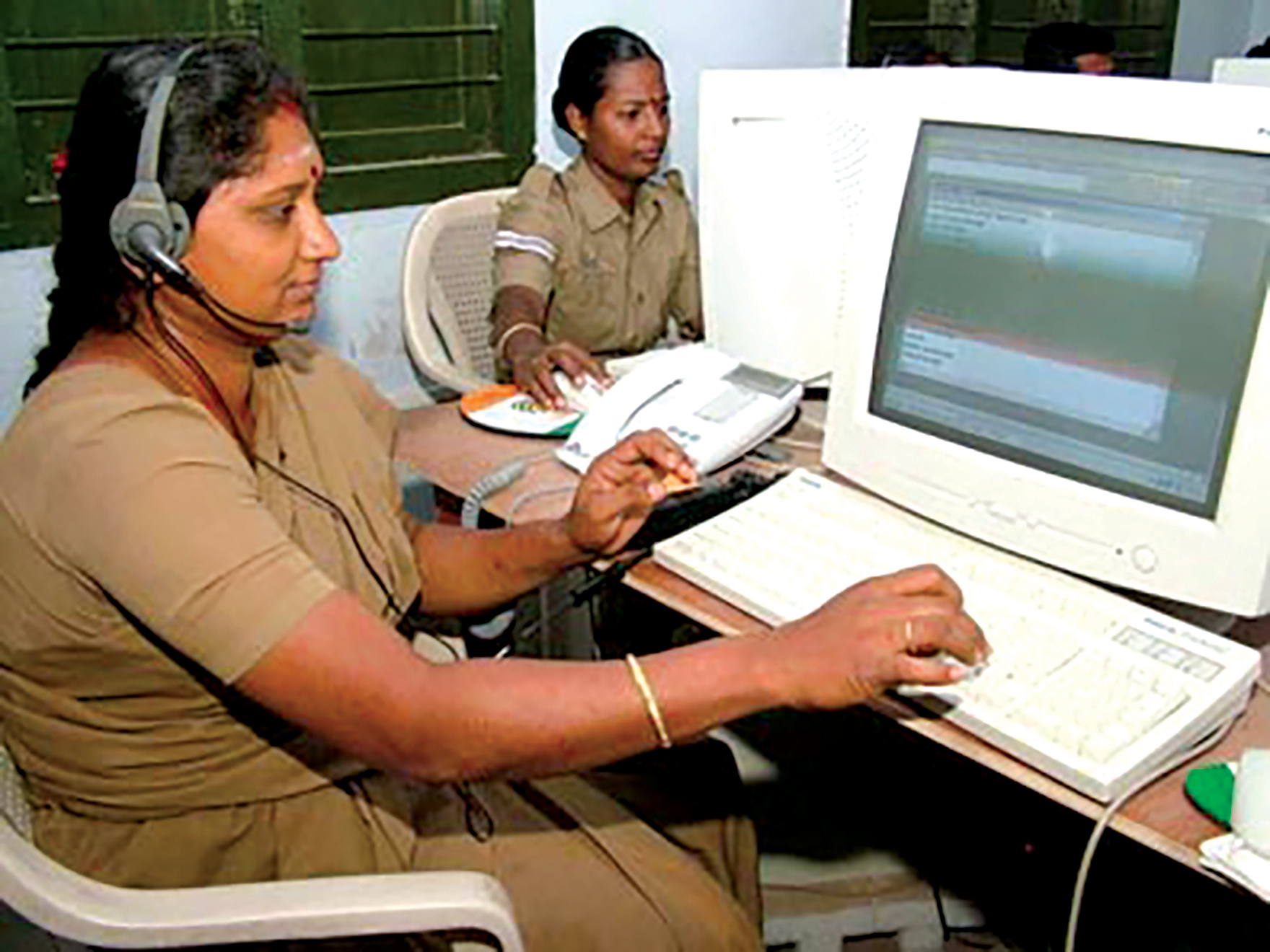If you’re a woman and you find yourself in some kind of trouble and need help, the reflex action is to instinctively dial 1091. The women constables who receive your call, the ones that set the ball rolling, are actually sitting in a room surrounded with telephones, wires, and beeps and boops, trying to get your concerns addressed at the soonest possible moment.
The recent Netflix release, Soni, has stirred up a storm within the Indian audience — with its authentic and believable storyline about a female cop and her superior officer dealing with sexist behaviour in their personal lives. The film displayed the grind faced by female police officers via shelves of two ordinary but formidable women.
Patriot spoke to some victims who were helped by such police officers, as well as the female operators at the Women’s Helpline call centre, to gain some perspective on the different kinds of situations that female cops have to handle on a day- to-day basis.
When asked about what the most important factor is, when being on the receiving end of distress calls, Ankesh, one of the operators who has been working at the Helpline for the past four years, says, the key is to be a good listener, and to be polite, no matter what. A common problem that the operators often face during the late hours of the night, are from inebriated men making lewd comments. And even in such situations, they must handle the callers with diplomacy and address them with respect and call them ‘Sir’.
Most of the calls received on the helplines are about rape, molestation, domestic abuse, obscenity, eve teasing and stalking. The frequency of these calls is more or less unchanging every day of the week. The operators collectively recalled a recent case of reported murder, and the rape of a minor girl as the most shocking calls they have received in the recent past, the details of which they declined to elaborate on at this point in time.
Maya, 24, recounts that she was returning from a party with her friends, when she encountered a female police officer in action for the first and last time. “We were partying in Gurgaon, and we were driving back to South Delhi at around 12:30 am, and on one of the freeways, there was one more car which started following us. There were two middle aged men in the front seats and they both looked a bit drunk,” she recalls, not forgetting to mention that they, in turn, did have a designated driver for the night. When after a couple of minutes Maya and her friends realised that the men in the car were following them, and trying to look at them, they called the cops, and informed them of their location on the freeway.
They drove for hardly two minutes when they came up to a toll booth which was close by a police check point. Both the cars were stopped. One of the officers was a woman, who reprimanded the men, and took down their vehicle and personal details and even issued them a challan for driving drunk. “Apart from the fact that I was really relieved, I was also a little happy, all things considered. We all hear about how bad the law enforcement is sometimes, but this was the first time I experienced it actually working out.” And for a moment, she says, she felt safer.
We asked the hotline operators about how they approach callers, when they have to field and address about 100 calls a day, some of which are prank calls, and some blank (not related to any crime). The only traits they agreed on were to first placate and empathise with the caller, and then satisfy whatever requirement they have. No matter how small or unimportant it may seem over the phone, it is not possible to judge what is really happening on the scene. So, the instant the routine “Where are you? Can you give us your address?” question is answered by the caller, a formal request is filed and the nearest police van or ambulance, as per the requirements are immediately dispatched to the location.
The helpline staff works in three shifts – 8 am to 2 pm, 2 pm to 8 pm, and 8 pm to 8 am. The hours and the kinds of calls received during those times have been found to follow a typical pattern. The early hours of the morning are when road accidents and robberies are reported (due to drunk and unlicensed driving, among many), from 8 am in the morning till about sunset hours, traffic jams and cases of road rage are reported (since these are the office hours, calls are generally fewer during this time. Until 11 pm, since people are travelling back and forth from work, road rage incidents are common, and after that, the drunk calls start to pour in. However, two kinds of calls that remain more or less constant, are those of domestic abuse and quarrels.
Concerns had been raised previously about the dearth of dispatch vehicles and manpower to adequately respond to all the crisis calls they receive from all the locations. However, these seem to have dissipated to a certain extent. The operators at the Command Centre agree that they had no issues with the system currently in place.
Given the rates of crimes against women in the capital city, it seems almost as though there really is no yellow tape that can keep potential assaulters away. However, a more magnified look reveals that the number of crimes prevented and perpetrators admonished is in no way insignificant.





